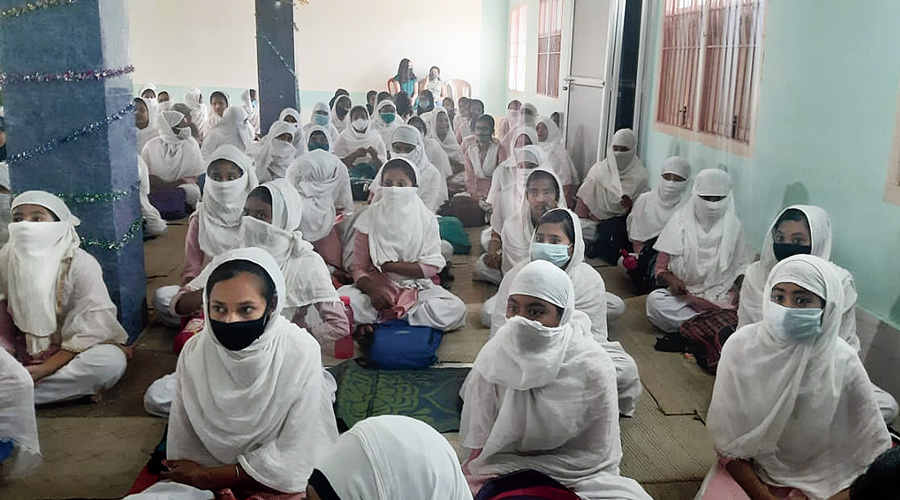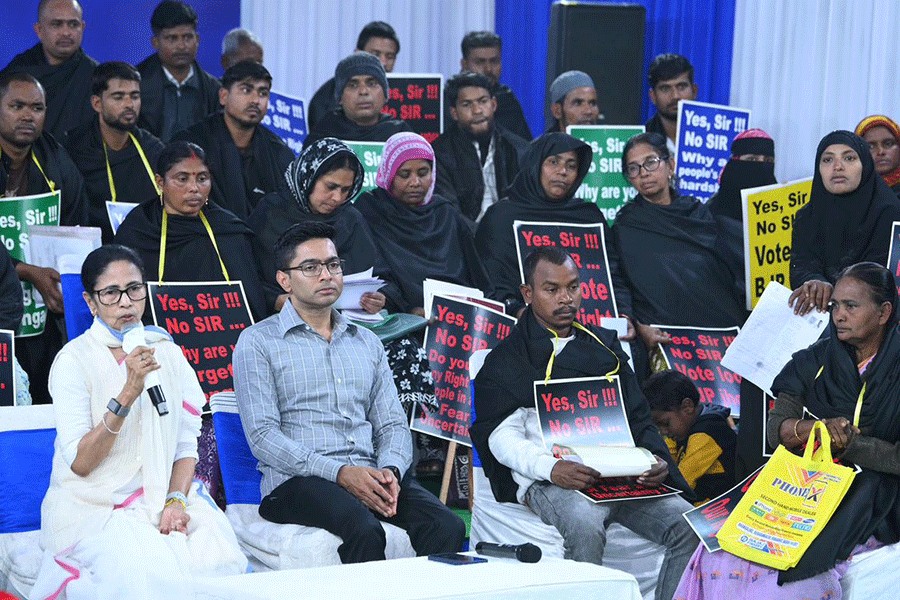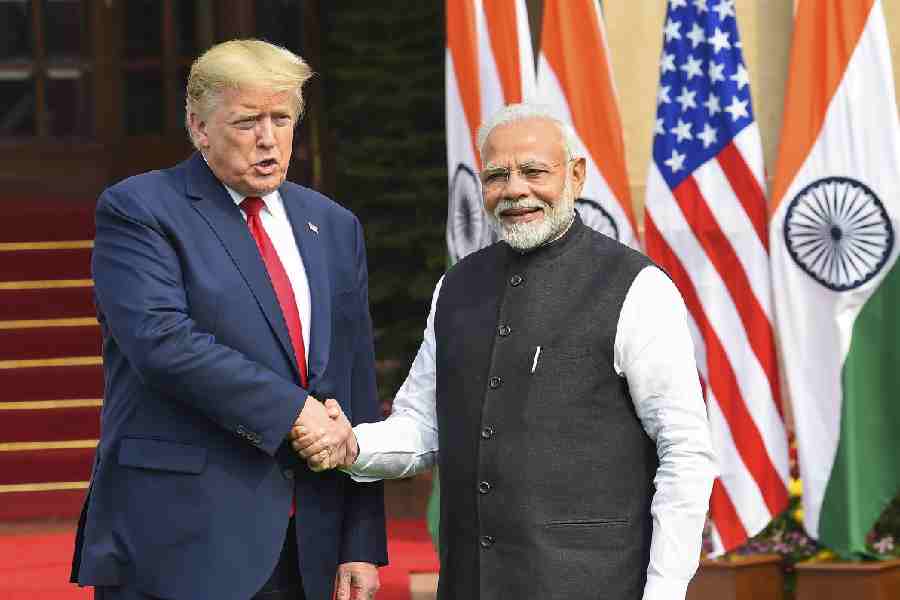Girls in a madrasa in a remote village in Murshidabad were taught about gender equity through circumstances that they or their mothers have to deal with in their everyday lives.
The Class IX girls were asked to think and question what their mothers wanted to be and what they are now or what their dreams are compared to their brothers’.
Tuesday’s day-long session at Debkunda Sk. Abdur Razzak Memorial Girls High Madarsah at Murshidabad’s Beldanga block, was initiated by their headmistress who fought child marriage several times as a teenager, partly funded her own education and now works to empower girls.
“The discrimination and deprivation that exists in society exists in their homes, too, and we tried to point those out so they think and question. We want them to go back home and ask their parents why there are such biases in approach when it comes to them and their siblings,” said headmistress Murshida Khatun.
Khatun spoke of how in many homes the boys still get a better share of the food or more nutritious items compared with their sisters.
She said that this week’s session was one of many which are to follow to help girls understand and assert their rights.
Moupia Mukherjee, from the city, who works on gender issues and has been travelling to Beldanga since before the Covid pandemic, conducted the latest session.
“Since I have interacted with them closely, I am aware of the socio-economic structure of the families. The idea of the session was not to preach but give them questions that would make them think,” she told Metro.
“Some of them were asked ‘what kind of work did your mother do during the lockdown?’ and ‘what did your father do?’ There were also questions like ‘what were your mothers’ aspirations?’,” Mukherjee said.
She said the seeds of gender inequality were contained in their answers — some of them said their mothers wanted to be doctors, teachers or join the police, but were married off at an early age instead.
“I also showed them film clippings that help break gender stereotypes, like ones where the woman actor is riding a bike and the male actor is sitting on the rear seat,” said Mukherjee.
Last year’s lockdown and being at home during the pandemic have further restricted their lives and outlooks, making such sessions more important, Khatun said.
“At least when they would come to school, they had a life outside the house. The pandemic took that away from them and further confined them. All they could be busy with were household chores and taking care of their siblings. Books became artefacts to be kept on shelves,” she said.
Khatun said it was important to conduct these sessions because they help to engage the students outside of academic classes and encourage them to come to school
“Some of the girls have got habituated to doing domestic work and in some homes, the parents have put so much responsibility on them that they would discourage them from going to school every day leading to irregular attendance,” said Khatun.
The importance of the session was not lost on the students and a Class IX girl said that the difference was there in many homes, including hers.
“If I am late in returning home, I am questioned, but my brothers are not. I am always expected to be properly dressed,” she said.










